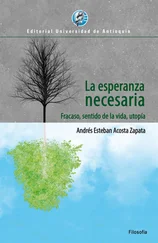His parents spent all evening encouraging him to go to the beach club the next day to see if any of his friends from previous summers had arrived yet. They seemed unconvinced that what had happened on the beach had simply been an accident, especially his father, and it was as though they’d conspired to ensure he wouldn’t be on his own for even a minute.
“We can both go tomorrow, together, if you want,” he said.
And then his mother, “But what happened, exactly? You suddenly got dizzy, that’s it? Maybe we should take you to the doctor, you’ve never had dizzy spells in your life!”
And Anita’s eyes suddenly brimmed with tears; she’d been holding them in all through lunch, staring at him with strange, dreamlike intensity, and when his mother brought up the doctor, her eyes filled with tears and she began to cry convulsively, as if someone were shaking her body, making it jerk. She took a tiny step toward him, longing to be touched, but it was her mother who hugged her.
“It’s all over now, silly. Why would you cry now? Can’t you see your brother’s fine?”
But he was the only one who seemed to realize how much it bothered Anita to be called silly, how her forehead scrunched up in something that wasn’t pain, or a release of tension, but wounded pride, pure and simple — diminutive pride, wounded, in that diminutive body.
“I’m not silly,” she said.
Anita.
Their summers had a strangeness to them, a tendency to be compartmentalized, filled with identical activities, there was a sort of routine to their relaxation into which new and extravagant plans were sometimes introduced (“How would you like to try water skiing?”—Papá), white noise, bedrooms they’d never again inhabit but which for that one month took on all the easy-going languor of intimacy, almost like a whisper, so it was as though they’d already been in those exact same circumstances countless times, and yet they were entirely new, the pine trees looking different depending on the view from the house, and also the dunes that hid their view of the shore from the balcony; only occasionally did their wintertime lives occur to them at all, and even then it was a struggle to recall them. Sometimes the sensation of summertime was purely auditory — an inflection in the air that made them breathe a certain way, slower — or it was the easy lethargy of their movements at mealtimes, as though they couldn’t be bothered to complete any of their gestures. If he stopped to consider all the summers of his life and compared them to that one, he could immediately see that there was a before and after with regard to the episode at the beach. Up until that day, that particular summer hadn’t seemed much different from the others; afterward, it had taken on unprecedented velocity.
He’d wake up early. The same morning his father made him go to the beach club to meet up with his supposed friends from previous summers, for instance, he’d gotten up at seven, had breakfast alone in the kitchen, and then puttered around the house. He stole one of his father’s cigarettes and went out to the balcony to smoke it. He didn’t smoke often, but it was a custom he enjoyed, and he always did it alone, for fear of looking stupid. His parents’ room opened onto the balcony, and they’d slept with the window open. He peeked in and saw them lying in bed, not touching, his father on his back, in his underwear, his mother curled in a ball, her nightgown bunched between her legs. He’d seen them asleep many times, and they hardly looked any different that morning from the way he remembered, but on other occasions he’d felt almost embarrassed and left right away, and that morning he stood gazing at them for some time. He confirmed what he’d often suspected — that their faces got puffy while they slept, that their bodies were appreciably fuller and heavier than during the day, and drier, too, as though something dehydrated them in the night. He actually had to force himself to hold his gaze on them for so long. At first he felt an ordinary embarrassment and the urge to turn away, but soon he got the strange impression that he was appropriating something private, something that was somehow wrong of him to see despite the fact that it happened every day. It was as if they were almost chalky, almost obese, like a couple of puppets worse for wear — they looked like they’d been stuffed with cotton, bounced off the walls and ceiling a thousand times, and had then collapsed atop the bed like that, the backs of his mother’s knees full of tiny, blue and deep-red veins, the skin on his father’s belly thin and delicate, like an old man or a very old dog — their breathing was deep, something had been lapping at them in the night, or maybe their whole lives.
Later, when they’d finished breakfast and his father suggested they go to the beach club, he eyed him watchfully. From below, his profile was still majestic; he walked amiably and was less puffy than when he was asleep, but he also looked more agile, more virile. All his life, he’d admired his father’s grace, and now he was discovering — as though the discovery had occurred while watching him sleep but taken until that moment to be confirmed — that he was also a troubled man, biased, impatient, perhaps sensual; he was discovering that his grace was the result of pretense, a pretense as ingrained as a habit or an incurable defect.
“Did you have any girlfriends before Mamá?”
“Where did that come from?” his father asked, turning to him, bemused.
“Just curious, I guess.” He kicked a stick to divert attention, and because he regretted having brought it up. They’d never confided in one another and were bad at it, both of them immediately self-conscious.
“Sure. Lots. One for quite a long time. A friend of your Aunt Eli’s.”
“So why’d you break up?”
“Because I met your mother. And because you and your sister were destined to be born, I guess.”
He smiled when he finished speaking, as though feeling the need to apologize for that nod to sentimentality. His father’s genuine amiability did not in fact extend to the realm of intimacies. He was an affable man, an extrovert in the superficial sense of the word, but as quiet as dark waters. Only occasionally did his emotions erupt, like a sudden flowering of some sort, so this expression of optimistic fatalism seemed surprising; he was like the “ideal father” but with a key attribute missing. Floating within him was something akin to a lack.
“I’ll come get you around lunchtime, if you want — that way you’ll have time to catch up with everyone.”
“OK.”
But he didn’t even go in. He stood for a second and watched his father walk toward the beach, then headed for the estuary. What lingered in his mind when he thought about the kids he’d hung out with other summers was something between never-ending humiliation and a blanket tedium that was exhausting. They were boys and girls from good families — almost all from the city — and they behaved like mini-emperors, a plague of fourteen-year-old serpents, green and shiny, taking over that small beach town every summer. Over the course of the previous summer, he’d begun to experience a strange feeling of contempt for them, embarrassed on their behalf but also overcome by a vague sense of inadequacy. They were almost all good looking, almost all blond or nearly blond, and they made him aware of their beauty and affluence in a relentless and particularly unpleasant way, as if he and all those whose presence was not smarmily justified should revolve around them like satellites in the hopes of falling into their good graces at some point. Their actual behavior was fairly passive, but they took for granted that the world existed to serve them, and when they wanted something, they simply took it. Perhaps what humiliated him the most about the whole situation was that he’d once been spellbound by them, that he’d tried to belong, to join their group. He was like a spiteful girlfriend, and his animus — an animus he felt in his stomach, bitter, pulsating, unresolved, like that of a person ashamed at having loved another — was perhaps fierier than strictly reasonable.
Читать дальше












